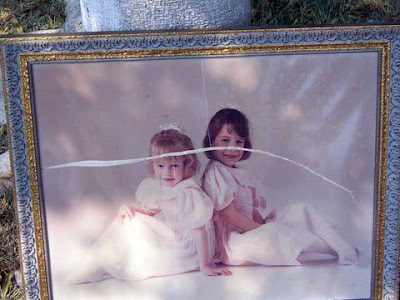Katia Kapovich

My half-brother had dark sad eyes, wheaten hair
and the same gorgeous skin his mother had.
He was cute and smart and innately kind,
unlike me at his age, according to our father.
Five years younger than me,
Tim attracted all the love
my father had frozen in his heart
when I was growing up.
Tim was brought up on my old books.
He did better than I with poetry,
reciting by six some “grownup” verses
which I couldn’t memorize at eleven.
At eight he wrote a poem
at the back of his math exercise book
and forgot about it.
It was a love poem
with an underlined dedication, “To A.”
It so happened that I knew who A was.
The poem read as follows:
“I loved and missed her so much
that I forgot what she looked like,
and when she entered the classroom
in the morning, I did not recognize her.
I did not recognize her long face,
nor her slow neck, nor her skinny hands,
I had completely forgotten her green eyes.”
It was quite a work of art, in my opinion,
but I told him that to sigh about
legs and necks and eyes
was sentimental and girlish.
He listened to me with dry eyes
and then tore out the page and threw it away
into the wastebasket.
He never wrote poetry again, but I did.
At fifteen I wrote a short story
which had some success and was even
published in a teenage literary magazine
called “Asterisks.” It was around that time
that I stopped visiting my dad’s house
after I realized
that everything about this boy
put me down, humiliated me
and filled me with jealousy.
I would meet dad on one condition:
if he wanted to see me,
he had to come to my place
or to stop by at the artsy café,
where my older friend Lena and I
would go after school
to sip strawberry milkshakes.
One day my father
came to my school during class hours
to take me to a hospital: the night before
my half-brother had gotten sick.
We arrived in the middle of the doctor’s rounds.
The waiting area was noisy
and smelled of urine and medication.
Dad had gone inside,
I waited for him to call me in.
Through the door left ajar
I saw a row of iron bunks with striped mattresses.
Tim’s was next to the door.
He lay leaning on a big gray pillow,
a glass of water in his hand.
The doctor wanted him to take a pill,
but he wouldn’t hear of it.
He was willful, obstreperous,
he pushed away the hand of medicine.
“I want that ship, that ship …” he whined.
“What ship?” My father turned pale
and stared at the doctor. “Can’t you see?
The green one, over there!” cried Tim,
inserting his finger in the glass of water
where a green ship, a three-funneled steamer,
was slowly sinking at the time.
From
Gogol in Rome, 2004
Salt Publishing













